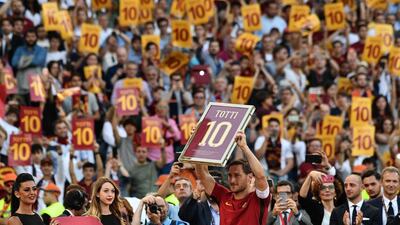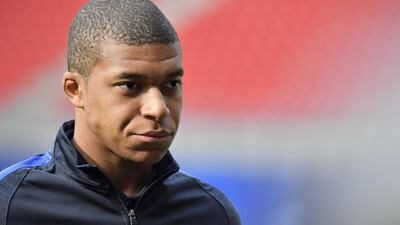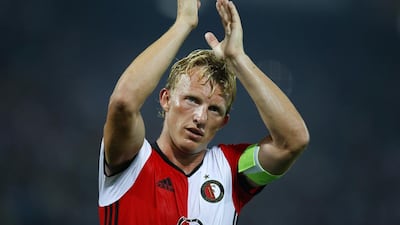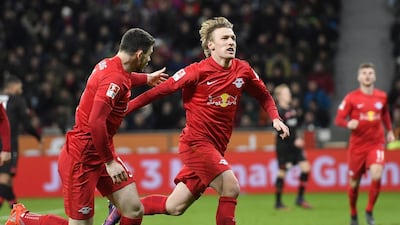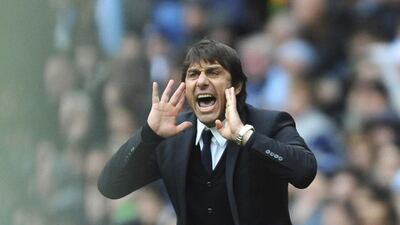The hardest cup of all to defend will remain housed in the trophy room at the Bernabeu for the next 11 months. Bravo, then, to Real Madrid for doing what no club had managed since 1990, winning two European Cups in succession.
Order, Real will say, has been restored, with club football’s top prize going to club football’s most decorated institution. But 2016/17 across Europe was not all about establishment muscles being flexed.
On the contrary. While Juventus, losing Uefa Champions League finalists, celebrated a sixth successive Serie A title, and Bayern Munich marched on to a fifth Bundesliga crown on the trot, the formerly swaggering Paris Saint-Germain were deposed in Ligue 1, and Barcelona finished beneath top spot in Spain for the first time in three years.
__________________________________
Read more
■ European team of the season: Spearheaded by Messi and Ronaldo
■ Ian Hawkey: Cristiano Ronaldo and Real Madrid continue to set new landmarks
__________________________________
OK, so Barcelona’s leapfroggers were the reigning European champions, but it was Real Madrid’s first Primera Liga triumph since 2012.
Monaco, meanwhile, celebrated like they have not done for 17 years, champions of a French championnat that, perhaps more than any of Europe’s leading competitions needed refreshing, required proof that PSG’s massive investment in players does not have to deprive the title race of meaningful suspense.
Thankfully for the rest of the continent, the Monaco feel-good factor could be shared beyond the small support-base of Monte Carlo.
They reached the last four of the Champions League playing with all the verve that made them the continent’s most prolific scorers. Their panache looked like a happy symptom of the fearlessness of youth, of young men like teenager Kylian Mbappe, backed up by a couple of wise old heads.
There were new champions in the Netherlands – Feyenoord, for the first time this century – and of the Europa League, which Sevilla, winners the past three years, left free for an Ajax, another set of young dashers, to reach the final, where Manchester United’s better know-how put them in their place.
United needed that prize, after their barren recent years, for a ticket into next season’s Champions League, having found the top four of their own Premier League too clogged up to let them in.
Chelsea, with a calendar clear of the European engagements other English clubs mostly found too hard to make a great impression in, mastered the big-spending Premier League best.
They did so thanks to a manager, Antonio Conte, who keeps up the gold-medal reputation of Italian coaches.
Like Claudio Ranieri, who took Leicester City to the English title a season earlier, Conte and Bayern’s Carlo Ancelotti, both new to their jobs, showed that there is something in a calcio education that works quickly and effectively wherever you take it.
Minnows and Money
Who might be the next Leicester City? These pages asked that question a year ago, wondering if there was a major league in Europe that might be surprised in the way the Premier League had been in 2015/16.
Back in December, it looked as if RB Leipzig may manage something even more remarkable than Leicester.
They led the Bundesliga less than six months after being promoted to the top flight. Bayern eventually reeled in the arrivistes of the east in, but the second-place finish of Leipzig still ranks as an extraordinary achievement.
The applause for “little Leipzig” has not been universal. They, like Monaco, played some easy-on-the-eye football. But, like Monaco, their ascent has been facilitated by financial advantages not every ambitious provincial club can call on.
Monaco have certain tax advantages that come with being domiciled in a sovereign Principality; Leipzig are backed by the Red Bull organisation, whose patronage extends across sports and they seem to have found a loophole around the ownership regulations that keep most German clubs outside the ownership of individual corporations.
Within Germany, RB Leipzig are regularly jeered – and worse – by rival fans because they have been given their wings so conspicuously by big money.
Leipzig have thrived in a fluid Bundesliga, and finished above Borussia Dortmund, who will be joined in the next Champions League by Hoffenheim, the small-town club with – again – a wealthy backer who had the courage to appoint a manager who was only 28 when he assumed charge 17 months ago.
Julian Nagelsmann has worked miracles in his first full season. The likes of Schalke, slumping Bayer Leverkusen and plummeting Wolfsburg look up at fourth-placed Hoffenheim with envy.
In Italy, both Milan clubs, especially Inter Milan, blush at their own underachievement next to that of Atalanta, from nearby Bergamo.
Atalanta, guided by the independent-minded coach Gian Piero Gasperini, finished fourth in Serie A. Like Monaco, and Ajax, their progress was an endorsement of a strong, well-run academy.
In England, Tottenham Hotspur could also be proud of home-grown players. They were runners-up again in the Premier League and perhaps its most watchable team.
Tottenham are hardly low-budget, but they do not pay the same monstrous fees or salaries of other clubs in England’s top five.
Back Threes back In
As it happens, both Nagelsmann and the worldly Gasperini tend to favour three at the back, with wing-backs, a tactical set-up that returned forcefully to mainstream fashion in 2016/17.
Conte famously introduced a 3-4-3 at Chelsea after a mediocre start to the season and a heavy defeat to Arsenal. Chelsea soared from then on. Six months later even Arsene Wenger, a manager of firm ideas, had tinkered to three-at-the-back for the first time in 21 years.
Meanwhile, Tottenham’s astute manager Mauricio Pochettino had his players slipping comfortably into three across the back when it suited.
For Juventus, who boasted the strongest defence in Europe, switching to a back three has become second nature. Barcelona, a club with fierce dogmas about style, introduced a 3-4-3 late in the season.
Barca will have a new manager next season, Ernesto Valverde, with Luis Enrique stepping down after three years, two Primera Liga titles, a European Cup and a trio of Copas del Rey.
He learnt fast that, at the super clubs, the demands are oppressive. Ancelotti knew that when he arrived at Bayern, but feels it sharply now.
The Italian, despite his Bundesliga crown, is among a large group of decorated managers who moved into new jobs last summer and are already under pressure to do much better in their second season – in Ancelotti’s case, that means a Champions League final – than their first.
Comebacks and goodbyes
There were some stirring comebacks in 2016/17, notable Barcelona’s 6-1 win over PSG in the Champions League, from trailing 4-0 in the first leg.
There was the renaissance of Mario Balotelli at Nice, whom he colourfully guided to third place in Ligue 1.
Radamel Falcao, fit again after two years of tortured struggle, acted the 24-carat leader for free-scoring Monaco. Serie A’s leading marksman was the same Edin Dzeko who in 2015 managed just three goals for the Roma he had joined amid great fanfare. His club contributed thrillingly to an Italian top flight where there were plenty of goals, but where none will ever be scored again by Francesco Totti.
Tearfully, Totti played his last match for Roma, age 40, after 24 years in the ruby first-team jersey of his hometown club. Elite football will wait a while to see such loyalty and longevity combined.
There were epoch-ending farewells at Chelsea – John Terry’s – and Bayern, with captain Philipp Lahm announcing the end of his 22, all-conquering, standard-setting years attached to the club. His teammate, the serial champion Xabi Alonso, is also to retire from football, having distinguished the midfields of Premier League, Spanish Liga and Bundesliga throughout the 21st century.
The game waved goodbye to another Spanish institution, Atletico Madrid’s Vicente Calderon, and to Tottenham’s old White Hart Lane ground. How those two clubs, who have emerged as formidable title contenders in powerful leagues which only recently excluded them from the summit races, adapt to new homes will be intriguing.
And their new venues can anticipate hosting unfamiliar names in the Champions League, a Nice perhaps, or a Hoffenheim or a Leipzig, all welcome to a big stage where variety is a good thing.
Follow us on Twitter @NatSportUAE
Like us on Facebook at facebook.com/TheNationalSport
